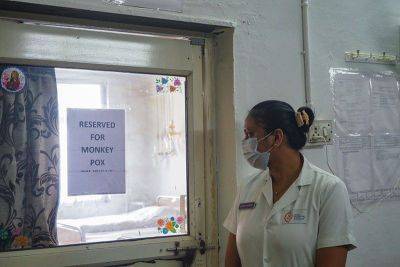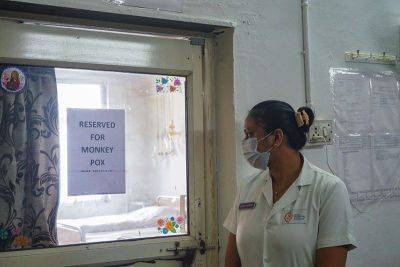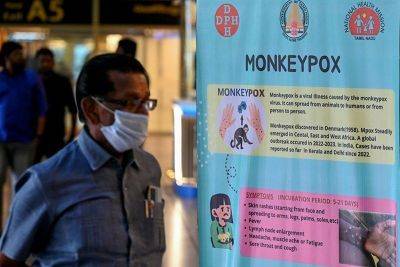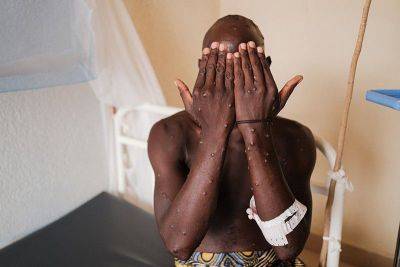WHO says droplets a 'minor' route of mpox transmission
GENEVA, Switzerland — The WHO on Tuesday said droplets were a minor route of transmission for mpox compared to physical contact, adding that more research was needed to understand how the outbreak is spreading.
The World Health Organization declared an international emergency over mpox on August 14, concerned by the surge in cases of the Clade 1b strain in the Democratic Republic of Congo and its spread to nearby countries.
The UN health agency says on its website that mpox spreads between people mainly through close physical contact with someone who has the virus.
"Close contact includes skin-to-skin (such as touching or sex) and mouth-to-mouth, or mouth-to-skin contact (such as kissing)," it says.
It can also include "being face-to-face with someone who has mpox (such as talking or breathing close to one another, which can generate infectious respiratory particles)".
WHO spokeswoman Margaret Harris said Tuesday that if a person with the virus had lesions, "if you're talking closely to someone, breathing on them, physically close, face-to-face, there is a possibility" of viral spread, "but this is a minor source".
Instead, "what we're seeing is the close, physical skin-to-skin" contact as the chief route of transmission, she told a briefing in Geneva.
"When you're talking to somebody, you're spitting out droplets," but "it's not a very major form of transmission -- and it's not a... through-the-air, long-distance sort of transmission".
"More research is needed to fully understand the transmission dynamics," Harris added.
The WHO recommends the use of facemasks for those with mpox, their close contacts and health workers treating them.
There are two subtypes of mpox: Clade 1, endemic in the Congo Basin in central Africa; and Clade 2, endemic in West Africa.
The surge in the DR Congo is being driven by surges of two different Clade 1 strains.
The first is an outbreak in northwest DRC of what was previously known as Clade 1, now called Clade 1a.
The second, in northeastern DRC, is a new offshoot of Clade 1 called Clade 1b, which was first detected in September last year and is spreading rapidly.
The spread of Clade 1b, and its detection in nearby countries, were







